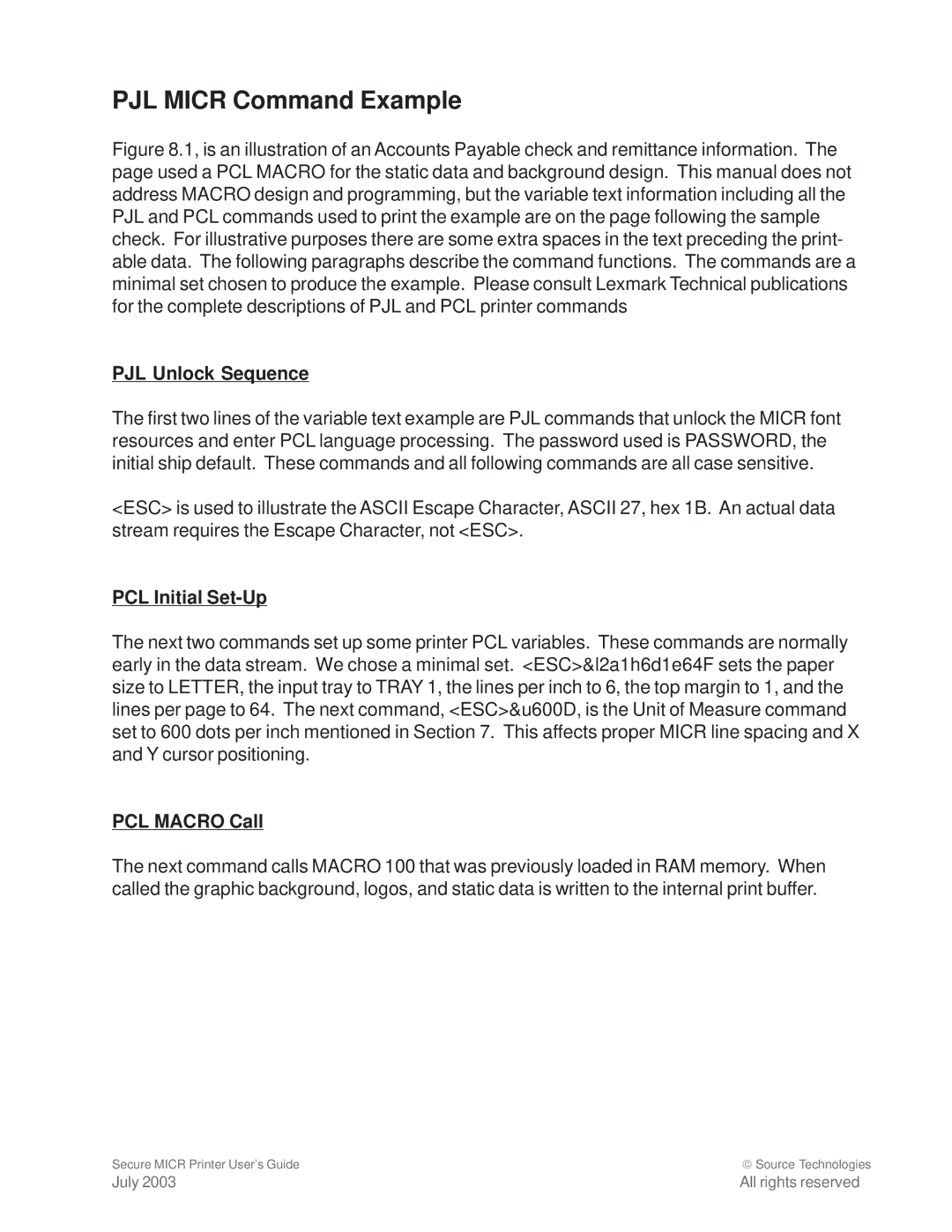PJL MICR Command Example
Figure 8.1, is an illustration of an Accounts Payable check and remittance information. The page used a PCL MACRO for the static data and background design. This manual does not address MACRO design and programming, but the variable text information including all the PJL and PCL commands used to print the example are on the page following the sample check. For illustrative purposes there are some extra spaces in the text preceding the print- able data. The following paragraphs describe the command functions. The commands are a minimal set chosen to produce the example. Please consult Lexmark Technical publications for the complete descriptions of PJL and PCL printer commands
PJL Unlock Sequence
The first two lines of the variable text example are PJL commands that unlock the MICR font resources and enter PCL language processing. The password used is PASSWORD, the initial ship default. These commands and all following commands are all case sensitive.
<ESC> is used to illustrate the ASCII Escape Character, ASCII 27, hex 1B. An actual data stream requires the Escape Character, not <ESC>.
PCL Initial Set-Up
The next two commands set up some printer PCL variables. These commands are normally early in the data stream. We chose a minimal set. <ESC>&l2a1h6d1e64F sets the paper size to LETTER, the input tray to TRAY 1, the lines per inch to 6, the top margin to 1, and the lines per page to 64. The next command, <ESC>&u600D, is the Unit of Measure command set to 600 dots per inch mentioned in Section 7. This affects proper MICR line spacing and X and Y cursor positioning.
PCL MACRO Call
The next command calls MACRO 100 that was previously loaded in RAM memory. When called the graphic background, logos, and static data is written to the internal print buffer.
Secure MICR Printer User’s Guide | Source Technologies |
July 2003 | All rights reserved |
